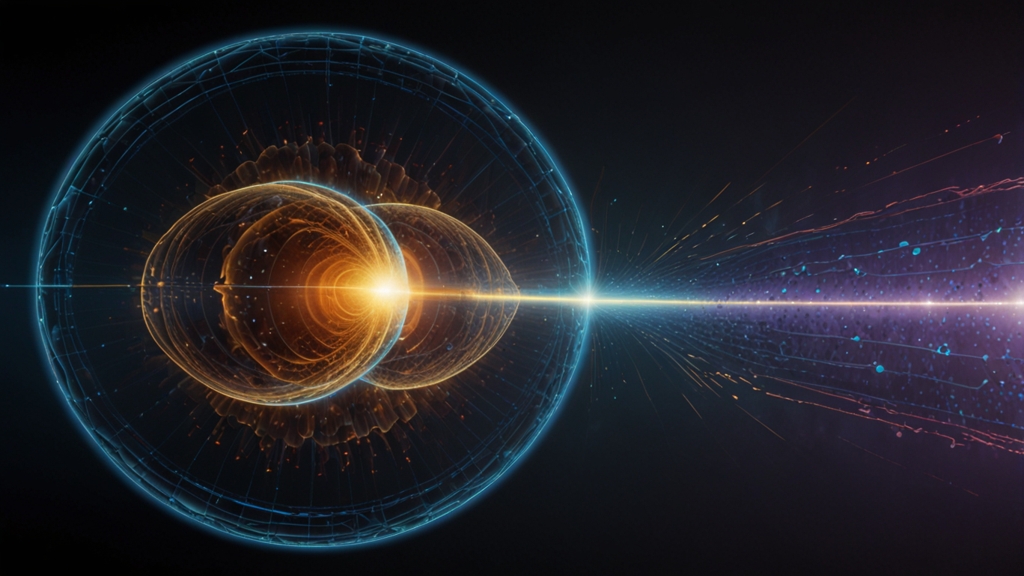Revolutionary Ideas Shaping Modern Physics Today
Modern physics is an ever-evolving field, brimming with radical ideas that continuously transform our understanding of the universe. From the tiniest subatomic particles to the vast expanse of the cosmos, the innovative theories and groundbreaking experiments in physics are reshaping our reality. Here, we delve into some of the most revolutionary concepts that are defining the forefront of modern physics today.
Quantum Entanglement and Quantum Computing
One of the most enigmatic and transformative ideas in modern physics is quantum entanglement. This phenomenon, where particles become intertwined in such a way that the state of one instantaneously influences the state of another, regardless of distance, challenges our classical notions of locality and causality. Albert Einstein famously termed it "spooky action at a distance," expressing his skepticism of its implications.
“I think I can safely say that nobody understands quantum mechanics.” — Richard Feynman
Despite its perplexing nature, quantum entanglement holds immense potential. It is the foundational principle behind quantum computing, where quantum bits or qubits can represent and process information in ways traditional binary systems cannot. This could lead to unprecedented computational power, capable of solving complex problems in seconds that would take classical computers millennia.
The Mysteries of Dark Matter and Dark Energy
Our understanding of the universe is shadowed by the mysteries of dark matter and dark energy, which together comprise approximately 95% of the cosmos. Dark matter, though invisible, exerts gravitational forces, affecting the movement of galaxies and the structure of the universe. Meanwhile, dark energy is thought to be responsible for the observed acceleration in the universe's expansion.
Physicists are revolutionizing their approach to understanding these entities. Experiments like the Large Hadron Collider (LHC) and observatories like the Dark Energy Survey (DES) are providing invaluable data, nudging us closer to uncovering the nature of these elusive components.
“Dark matter is an enigma that's challenging the very framework of our understanding of the cosmos.” — Lawrence M. Krauss
String Theory and the Quest for a Unified Framework
String theory offers a bold proposition: that the fundamental particles we observe are not point-like dots, but rather one-dimensional "strings" that vibrate at different frequencies. This theory aims to reconcile general relativity, which describes gravity, with quantum mechanics, which explains the other three fundamental forces of nature.
“The universe is a symphony of strings, and physics is the art of the musician playing it.” — Michio Kaku
If proven, string theory could be the long-sought "Theory of Everything," providing a coherent framework that unites all physical phenomena under a single theoretical umbrella. Despite its elegance, string theory is still highly speculative, necessitating further theoretical and experimental advancements.
Gravity Waves: Ripples in Spacetime
The discovery of gravitational waves by LIGO (Laser Interferometer Gravitational-Wave Observatory) marked a historic milestone in modern physics. These waves, ripples in spacetime caused by colossal cosmic events like black hole mergers, were first predicted by Albert Einstein in 1916 as part of his general theory of relativity.
The 2015 observation of gravitational waves not only confirmed a century-old prediction but also opened a new avenue of astronomical observation, allowing scientists to "hear" the universe in addition to seeing it. This discovery provides invaluable insights into the most extreme and energetic events in the cosmos.
Conclusion
The revolutionary ideas shaping modern physics today are not just expanding our horizons; they are reshaping the very fabric of our understanding. Whether through the eerie intricacies of quantum mechanics, the dark questions posed by dark matter and dark energy, the elegant aspirations of string theory, or the mind-bending discovery of gravitational waves, these concepts are propelling physics into new realms of possibility. As we continue to explore and question the cosmos, each breakthrough propels us closer to uncovering the fundamental truths of our universe.










